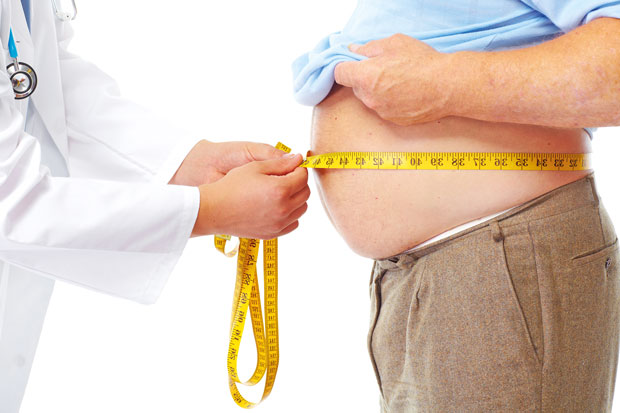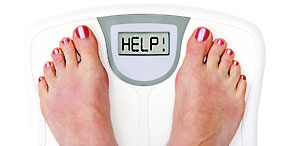28 Jun 2017 - {{hitsCtrl.values.hits}}

 “FAT” is a globally-recognized word used to describe people on the heavier side. Health experts warn about the negative impact of being overweight and we already know that this could lead to various health problems.
“FAT” is a globally-recognized word used to describe people on the heavier side. Health experts warn about the negative impact of being overweight and we already know that this could lead to various health problems.
Asians are genetically built to store every bit of consumed calories in their physique. Even if our lifestyles and food patterns have changed considerably, our genes remain the same. At present, we spend most of our time seated, consuming huge meals. Junk food leads to unnecessary and unhealthy fats being stored in the body.
The “Chuun-Paan” culture has invaded every nook and corner, and families are dependent on the bakers’ choices over home-made food for every meal, except lunch. Biscuits are yet another problem in addition to “Chuun-Paan”. Eating even five chocolate biscuits exceeds the daily sugar intake, as biscuits are high in sugars and unhealthy add-ons. Soft drinks, flavoured milk and biscuits are high in sugar content and the regular consumption of these accumulates fat that is difficult to remove without exercise. Unnecessary daily fat storage leads to obesity over time.
Diseases 
A protruding belly is a sure sign of an unhealthy life and the forthcoming sign of sickness. Therefore, people should watch out for belly fat as this could be a sign of diabetes.
Cheese, milk and chocolate are easily digestible for Europeans, while Asians differ from them genetically. We could easily develop diseases like diabetes due to our genes. Our ancestors who lived free of sugars, were physically active, worked in agriculture and led a simple lifestyle. People from past generations were used to eating grains, fruits, vegetables and green leaves. The noticeable changes in our food patterns are transforming us into sufferers. 30-35% of the country’s population already have diabetes or are in danger of it. These groups also suffer from high blood pressure. Urban citizenry lack awareness on whether or not they have diabetes.
Medicine
Do not insist on medicine from a doctor. The purpose of visiting a doctor is to get an opinion on the patient’s situation. The doctor will prescribe medicine if necessary. It’s better to change your lifestyle beforehand.

Lifestyle
Practice the mentality of stopping halfway through a meal when there is more space available. Do not give sweets to kids to get them addicted. Sugar, high blood pressure and cholesterol are controllable with dieting. The size of food portions depends on the employment of a person. A farmer needs more food as he is physically active and a clerk needs less. But the opposite happens. Past generations would work hard, and this burned the fat stored in their bodies.
Considerable changes in lifestyle have also contributed to the increasingly high health risks, including less exercise. Laziness has tempted people to avoid walking even short distances. Children in this era rarely play outside because they are confined to their rooms and seek company, pleasure and sport, all via computers.
Obesity
Obesity has been identified as a disease around the world and more school-age children suffer from obesity. Children these days put on weight mostly after the scholarship exams, around age 9. Consuming only carbohydrates is unhealthy and salt levels should be controlled as well, because too much salt could harm the kidneys. The unburned energy stored from full meals cause obesity and without the exercise, it is difficult to burn stored-up calories. Controlling the intake of junk food as much as possible helps in managing obesity. It is useless to have fatty meals and fruit juices after vigorous exercises as many do. Obesity causes arthritis, heart attacks, kidney diseases, osteoporosis, stress, sleep problems and affects productivity.
Sources
These opinions were expressed by Professor Sunil Wickramasinghe - Paediatric Unit - University of Colombo, Consultant Physician Priyankara Jayawardana - National Hospital, Colombo, Dr. Rasanjali Hettiarachchi - Director, Nutrition Co-ordination Unit- Ministry of Health and Dr. Renuka Jayatissa - the Director of Sri Lanka Medical Nutrition Association (SLMNA), in a seminar held at Health Education Bureau (HEB).
23 Dec 2024 8 hours ago
23 Dec 2024 9 hours ago
23 Dec 2024 23 Dec 2024
23 Dec 2024 23 Dec 2024